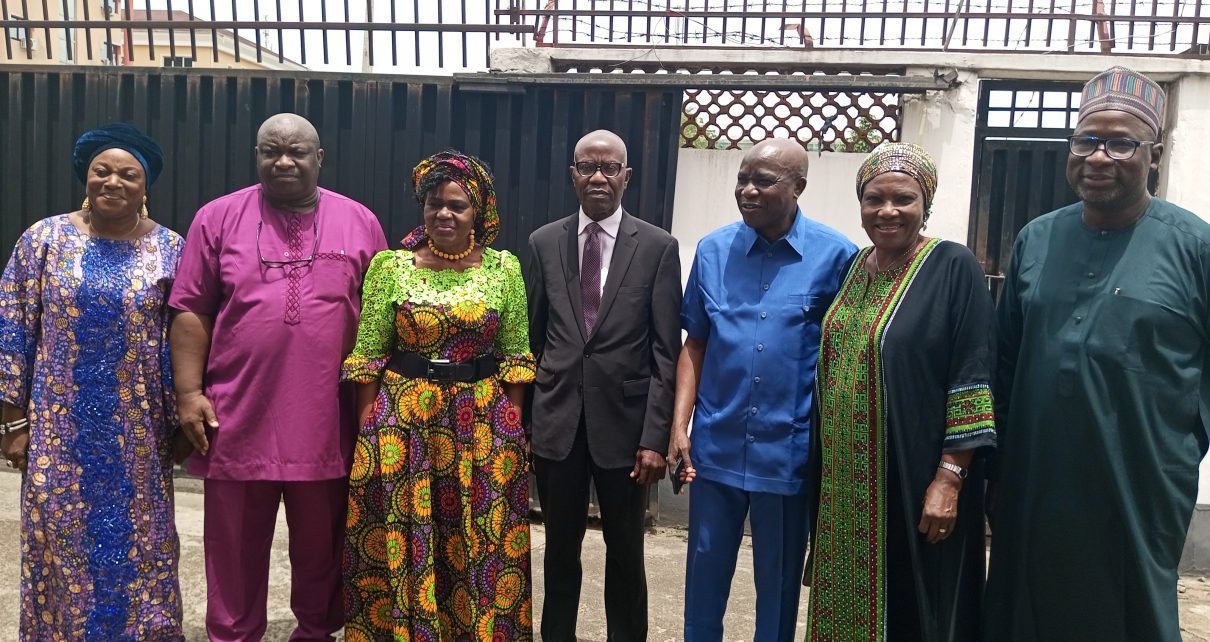To increase public trust in the media, the Nigerian media on Monday launched a nine-member board of the National Media Complaints Commission (NMCC), also known as the National Ombudsman.
The Nigeria Press Organisation (NPO) launched the commission in Ikeja, Lagos.
The NPO is made up of the Nigerian Guild of Editors (NGE), Nigeria Union of Journalists (NUJ), Newspaper Proprietors’ Association of Nigeria (NPAN), and Broadcasting Organization of Nigeria (BON) (BON).
During the formal opening, Malam Kabiru Yusuf, the NPO and NPAN president, declared that the commission will “watch the watchdog.”
He claims that the Nigerian Press Organization (NPO) serves as the governing authority for all print and internet journalists in Nigeria, including their owners, editors, and reporters.
“In deference to the dictum, that journalism is too important to be left to journalists, we have opted for a mechanism of co-regulation.
“This is done with the help of other actors like the civil society, especially the bar and non-media Non Governmental Organisations.
“Radio and television are already regulated, but the print, which is the oldest, and online, which is the newest, have escaped such control.
“The former warned by the lessons of history and the latter, by the amplitude of technology.
“Powerful and privileged Nigerians, irritated by the nosiness of the media, often express the wish for some checks on its powers. I sometimes think that such people take freedom for granted,” he said.
Yet, Yusuf claimed that some journalists appeared to be out in full force to demonstrate that their pen truly was a weapon for slaughtering actual or imagined opponents.
“The Ombudsman will call such people to order, to appreciate that the power of the press should be used for good, not for self-aggrandisement.
“To be effective, the physician has to heal himself, before he can apply the cure to others.
“We have selected a strong team to administer this medicine,” he added.
Mr. Emeka Izeze, formerly the Guardian Newspapers’ Editor-in-Chief and Managing Director, would preside over the nine-person committee.
“Izeze is one of our very best. To work with him, we have selected other leading lights of our profession and that of our partners,” he added.
Malam AB Mahmoud, a former president of the Nigerian Bar Association; Professor Chinyere Okunna, the deputy vice chancellor of Paul University in Awka; and Dr. Hussaini Abdu, the country director of Care International, were all named by Yusuf as fellow commission members.
Mr. Edetean Ojo, Executive Director, Media Rights Agenda; Mrs. Eugenia Abu, Experienced Broadcaster and Author; Mr. Lanre Idowu, Editor-in-Chief, Diamond Publications.
The team also includes Ms. Dupe Ajayi-Gbadebo, a lawyer and former Editor who now serves as Chairperson of the House of Representatives’ Committee on Information.
“We expect the commission to serve as an independent forum for resolving complaints about the press quickly, fairly, and free of charge.
“It must maintain high standards of Nigerian journalism and journalists’ ethics; and defend the freedom of the press and the right of the people to know.
“We invite all stakeholders in the Nigerian project to support this initiative. The media is wary of government regulation because politicians tend to have short-term goals.
“We are happy to submit to peer-regulation, by collaborating with civil societies, business and the professionals,” he added.
Yusuf lauded the ombudsman mechanism’s development team, which included representatives from the NPAN, NGE, NUJ, and the Guild of Internet Publishers.
In response, Izeze thanked the initiative’s backers and the people who had faith in the NMCC’s ability to get the job done.
The purpose of the panel, he insisted, was not to silence the press.
He said that the country’s stakeholders had struggled for a long time to ensure that the media was insulated from the corruption of those in power.
He claims that people have disliked the media since since the military administration and are constantly looking for methods to control it.
“What has happened lately is that we (media practitioners) haven’t also been keeping ourselves in check.
“Our responsibility primarily is not to come and gag the press, we will not do that. We think that we have to be fair to ourselves. We must always do the right thing.
“So, when the public is complaining, instead of waiting for the people who do not understand this job to pull us down, we will remember this commission and take the imitative to address the issue.
“People do not like their dirty stories being told in the public and there are too many dirty stories that have to be told, particularly in our environment, to make progress,” the veteran said.
The purpose of his position, in his view, is to provide the people with an outlet for redress.
“I assure you that with my colleagues here, we will attempt to do justice to your expectations and see how far we can go to help the media operate professionally.
“We will see how far we can go to help the media to observe some of those rules that we drew for ourselves and help the media to build what this nation needs.
“We cannot make progress in this nation without the media operating professionally, it is not possible,” he said.
The Guild of Corporate Internet Publishers, the leadership of NPO, NPAN, NGE, NUJ, BON, and other strategic media actors as well as members of the civil society attended the occasion.
The committee was officially established by Mr. Sam Amuka-Pemu, founder and publisher of Vanguard Newspapers.



